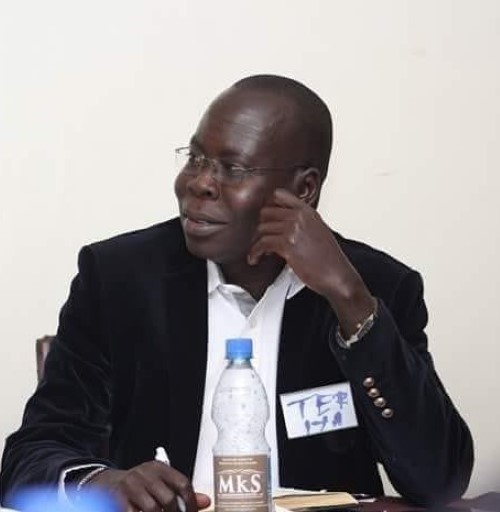By Yiep Joseph
A civil society activist has urged parties to the 2018 peace agreement to restructure the National Transitional Committee (NTC), a body tasked with overseeing implementation of the peace deal, to give peace a chance.
While parties continue with a series of extensions due to failure in implementation, activists claim that there needs to be a restructuring of the body in 2025 in order to realize the election as planned in 2026.
According to the statement extended to this outlet, Ter Manyang Gatwech, the executive director of the Center for Peace and Advocacy (CPA), blamed the NTC, headed by President Kiir’s security advisor, Tut Gatluak for the delay in peace implementation.
“Therefore, if we need functionally durable peace in 2025, the members of NTC should be removed or resign in order for the public to regain trust again in that institution,” Ter said.
He expressed that NTC never had an audit report while donors continue to give funds a lot, and still, there is no proper implementation of the peace agreement.
“The body never had an audit report from 2019 to 2024. Donors put in a lot of money, but it seems the money doesn’t go directly into those activities to be executed,” he claimed.
He urged for serious monitoring of the NTC, stating that the organization has consistently failed to fulfill its responsibilities as outlined in the peace agreement.
Ter appealed to the international community to investigate activities of the NTC, emphasizing the need for an audit of its operations.
“That body (NTC) destroyed South Sudan’s peace because there is no proper monitoring and evaluation from the external and internal,” he said.
“As an organization that monitors the implementation of the R-ARCSS, it’s time for the South Sudanese citizens to ask serious questions that will lead to accountability and transparency,” he added.
However, efforts to reach the office of the security advisor and chairperson of the NTC to respond to some of the allegations made by the activist were not successful.
Meanwhile, in a separate event in September 2024, stakeholders in South Sudan’s peace agreement called on the presidency to bring new faces to the National Transitional Committee (NTC).
During a security mechanism meeting in Juba, Gen. Bior Leek, a member of the Former Detainees (FDs), called on the presidency to restructure the NTC to avoid further disappointment in peace implementation.
Bior’s concern came in response to the extension of the transition government for two years after the peace parties failed to implement the 2022 peace roadmap.
“I urge the presidency to look into the NTC and reform it. Bring those who are serious about the implementation so that the people of this country will trust us,” Bior said.
“I urge the government, president, and vice presidents to look into those who are tasked with monitoring the agreement, change the personalities, and bring new faces to implement,” he said.
Bior claimed that, should the government continue with the previous members in the committee, the implementation would continue to fail.
“But once we stick with those people previously in the NTC, I think it will be zero work come 2026,” he added.
However, the nonstop extension from 2018 until 2026 has raised concern from peace stakeholders and the citizens on whether the committee is performing its task as mandated.
Gen. Bior claimed that the alternative method to end extensions is to bring new faces to the NTC in order to develop new modalities to implement the agreement before 2026 ends.
Besides the lack of resources, Bior expressed that the continued extension could be unseriousness by NTC. He noted that the current extension can also be meaningless should the same faces remain.
“The roadmap failed simply because the personalities that were tasked with the monitoring and implementation were not serious, and if they are the ones tasked to monitor and implement the extended two years (2024-2026), I think they will fail,” he said.
Also in 2023, the National Parliament summoned the chairperson of the National Transitional Committee (NTC), Tut Gatluak, to explain delays in the implementation of security arrangements; however, the committee has continued attributing the failure to a lack of funding.




